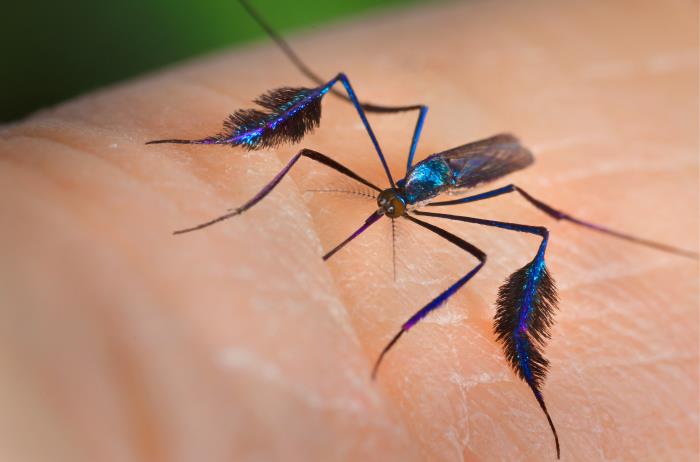WASHINGTON (March 31, 2023)— A joint study conducted by researchers in the Department of Pathology at George Washington University, Oregon Health & Science University (OHSU) and additional partners indicates lab-made antibodies may be able to treat people infected with yellow fever, a virus for which there is no cure. As many as half of people who get severe yellow fever die from the illness, which causes flu-like symptoms and can lead to jaundice and organ failure in more serious cases. Every year, the virus infects about 200,000 people — killing about 30,000 worldwide.
The natural immune response to invading pathogens normally involves making protective proteins called antibodies. A study recently published in Science Translational Medicine suggests that a single monoclonal antibody infusion can strengthen the body’s fight against yellow fever.
In the study, the yellow fever virus was undetectable in all animals that received monoclonal antibody infusions after being exposed to the virus.
“Neglected tropical diseases like yellow fever, dengue and Zika are often overlooked by traditional pharmaceutical development, but we hope monoclonal antibody technology will change that,” David Watkins, co-senior author on the study and professor of pathology at George Washington University School of Medicine & Health Sciences, said. Watkins is also the CEO of Mabloc, LLC, one of the additional partners which collaborated in the joint study.
“By showing such efficacy in a primate model that mimics severe human disease, we hope to advance this to clinical trials and be ready to deploy treatments for the next outbreak of yellow fever,” the study’s first author, Michael Ricciardi, associate director of translational research at the George Washington University and Mabloc’s director of product development, said.
Yellow fever can be prevented with a highly effective vaccine, which has been available since the 1930s. When the researchers began considering potential yellow fever treatments, the team initially considered 37 antibodies cloned from people who had been vaccinated against yellow fever. The team then narrowed its focus to two monoclonal antibodies capable of controlling variants of the virus that were involved in recent yellow fever outbreaks.
“Two monoclonal antibodies that we evaluated completely removed all signs of infection from research animals,” the study’s corresponding author, Ben Burwitz, associate professor at OHSU’s Vaccine and Gene Therapy Institute and affiliate associate professor at OHSU’s Oregon National Primate Research Center, said.
Both monoclonal antibody candidates also appeared to be safe. None of the animals that received either experimental treatment displayed liver dysfunction, a tell-tale sign of severe yellow fever infection and yellow fever vaccine-associated disease.
The collaborative research is a joint effort between the universities and the biotechnology company Mabloc, LLC, and other organizations. Mabloc plans to use these findings to inform a future clinical trial in humans, in addition to their product development efforts.
The research was supported by the National Institutes of Health and by Mabloc, LLC.
Some of the researchers involved in this study -- including Jonah Sacha of OHSU; and Michael Ricciardi., and David Watkins., of George Washington University -- have a significant financial interest in Mabloc, LLC, a company that may have a financial interest in the results of this research and technology. This potential individual and institutional conflict of interest has been reviewed and managed by OHSU.


